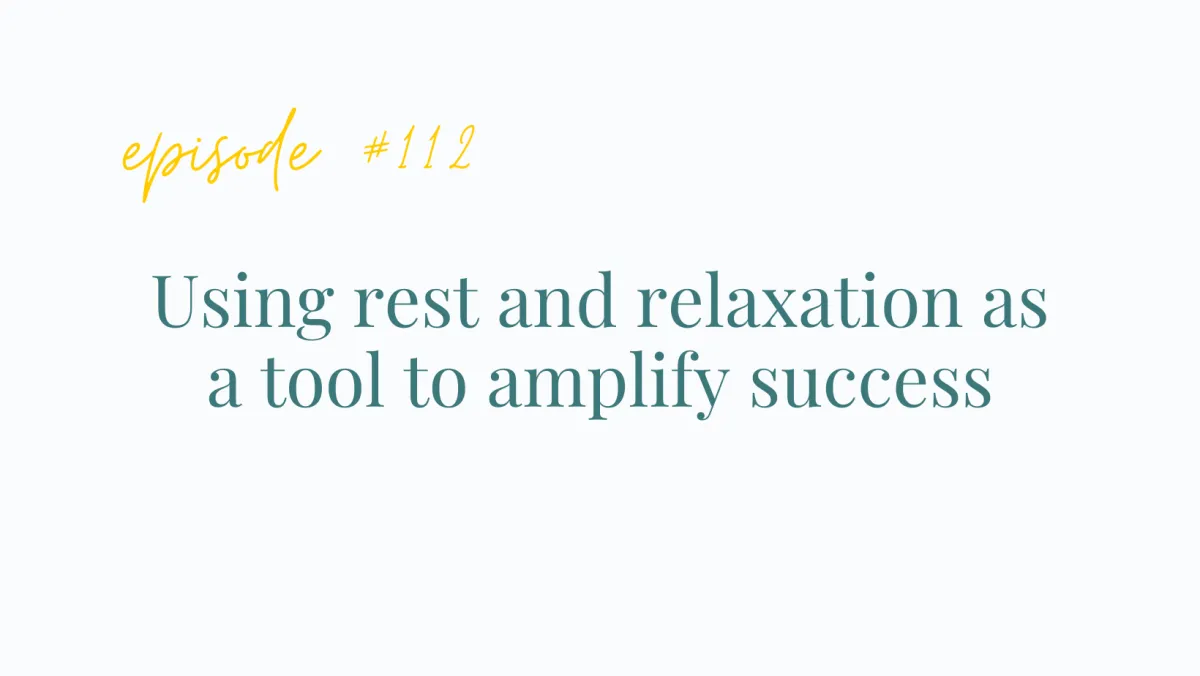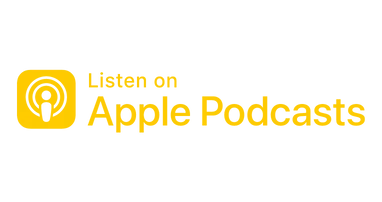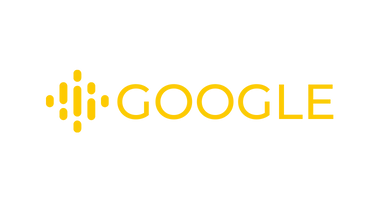
Ep #112 Using rest and relaxation as a tool to amplify success
Listen to episode below
For most business owners rest and relaxation is a bit of an afterthought. It’s something we rarely intentionally think about and plan because we’re so busy in the day to day running of the business and working to keep things going.
In this episode we are going to discuss why rest and relaxation should be part of your box of success tools rather than being something you do when you’re exhausted.
We’re also going to look at how the six human needs play into our overworking habits and how we can rebalance so that we use rest and relaxation to amplify the results we create in our businesses.
The Misconception of Rest
Have you ever sat down after a long day to watch a show on Netflix but you struggle to just switch off and enjoy the show because you feel guilty that you’re not working or you’re thinking about that client deadline that’s approaching?
Or you finally go on a weekend away but you feel anxiety that your business might need you so you pack your laptop just in case?
Feeling guilty for taking time off.
For me this shows up as “this feeling of I should be doing something”…
Society has taught us that rest is a form of laziness. It’s seen as a reward after hard work. Not as a critical component to success.
Most people are overworked, business owners especially so! Most women entrepreneurs work an average of 52hrs a week or more. With 63% or entrepreneurs working longer hours than the average employee. These stats don’t represent every single entrepreneur and If you ask entrepreneurs how much time they spend in and on their business and also how much time they spend thinking about their business they will say different variations of a lot or all the time.
Overwork and always being switched on has been rewarded and is worn as this badge of honour almost. It makes us feel important in some ways.
In Japan, death from overworking is referred to as “Karōshi” (過労死). This term literally translates to “overwork death” and has been used since the 1970s to describe fatalities resulting from heart attacks, strokes, and other stress-related conditions often attributed to long working hours and extreme work pressure.
The stress and pressure that come with running your own business can and does have an impact on your physical, emotional, and mental health.
As a business owner, you don’t get a pay-check simply because you showed up today. There are lots of things happening behind the scenes of a business. It’s not just physically doing the work it’s also the empotional and mental work that is happening that’s adding to the load.
We already understand the impact if stress (burnout, insomnia, low productivity and creativity, irritability, diseases). And we know logically that rest is important. That sleep is important. Our habits tell a different story though.
If I were to ask you if you would like to work less your answer would be yes. No one wants to work all the time. No one wants to neglect their health or relationships in the pursuit of building a successful business.
There is a disconnect between what we say we want and what we’re actually doing.
What’s fascinating is that we rarely stop to question our habits around work and being busy as entrepreneurs because we’re just so used to doing it. It’s what has been modelled to us and we can all think of a few books, gurus, successful business people that promote and advocate for working late, hustling, the grind. I am all for hard work. I don’t think hard work is the same as overworking or hustling.
Why we struggle to switch off:
1. Emotional Buffering:
We buffer when we take certain actions so that we don’t need to deal wih our real problems. We avoid them with buffering. We spend money to make ourselves feel better instead on dealing with the thing that we don’t feel good about. We overeat when we’re sad. Buffering is a coping mechanism that we use to manage stress and anxiety. We use it as a distraction from the real problem. The thing that is causing pain.
If we have a difficult relationship then we can use work as a means to deal with that stress, distract ourselves, and escape.
Emotional buffering isn’t necessarily a bad thing. It can be a way to recharge and deal with stress in a healthy way but if we overbuffer. Of that is our go to way of always dealing with stressful situations and avoiding dealing with things that we know we should resolve then it becomes a problem.
3. Lack of boundaries
Sometimes we overwork because we find it really hard to say no. So in an attempt to please our clients we overcommit ourselves, we say yes to impossible deadlines. We believe that if we don’t then our clients will be disappointed and leave.
2. Six Human Needs Influence
When I work with my clients I want to understand what they ate gaining from not making rest a priority. You might think…how could I be gaining anything from not resting. Overworking is always being switched on is tapping into our human needs.
Certainty: The need for security, stability, and predictability. Entrepreneurs might overwork to ensure financial stability and business success. Rest and time off moght feel insafe. If I am resting I am doing nothing and if I do nothing my business will fail.
Uncertainty/Variety: The need for change, challenges, and novelty. Running a business often involves facing new challenges and situations, which can be fulfilling.
Significance: The desire to feel unique, important, and special. Achieving business milestones can fulfill this need. Her business might be a major source of personal significance, giving her a sense of identity and value. Overworking can be a way to maintain or enhance this feeling, making it hard to step back and take a break, as she might feel she’s losing a part of her identity or value.
Connection/Love: The need for connection with others. Building a business often involves creating networks and connections, which can be deeply satisfying. She may sacrifice this need in the pursuit of business success. Overworking can lead to a disconnect from personal relationships, or alternatively, she might seek connection through her business interactions and professional network, which keeps her engaged with work.
Growth: The desire for constant emotional, intellectual, or spiritual development. Entrepreneurs often experience rapid personal and professional growth.
Contribution: The need to give, care, and protect others. A successful business can provide resources to contribute to the welfare of others. The desire to contribute and make an impact can be so strong that it overrides the need for personal rest and self-care.
The Impact of Imbalance
We really want to work at rebalancing how we meet our needs as entrepreneurs. Because if we don’t it has a ripple effect on our health and our relationships.
What’s the point of being successful in business if the rest of you suffers?
Overworking and not intentionally making time for rest is driven by a belief that “I need to put in lots and lots of effort if I want to succeed.” Fear of failure.
Belief that rest means doing nothing.
Effort is needed. But that effort needs to be balanced by periods of rest so your mind and your body can recharge.
Imagine your mind and body as a Formula 1 race car, one of the most advanced and high-performance machines in the world.
Race car pulls into the pit stop. It’s not doing nothing. It’s getting refuelled , tires are changed, they are doing mechanical checks to maintain the car in it’s peak state. To prevent it from breaking down on the track.
Looking at that car that is taking itself out of the race and it feel like it’s giving them a disadvantage. Wasting time. But the cars that don’t take the time. That push through and skip a stop. They break down. Often with severe consequences.
Similarly, without adequate rest, you can't maintain peak performance, creativity, and productivity in your daily life.
Redefining Success
It’s important that we take a moment to pause and ask ourselves what success really means to us. And how our business plays a role in making that a reality.
I so often see women entrepreneurs who are pushing themselves in an attempt to prove something to someone else. When we operate from this place where we are trying to work ourselves into being good enough we will always end up unhappy and exhausted.
In the end we are really only competing with ourselves and who we were yesterday. And although it’s always better to focus on bring your own competition, I do believe it’s necessary to ask ourselves when enough is enough. To dig deeper and find what it is that we’re chasing.
Going after something is important. It gives us a sense of purpose. But feeling driven to succeed and fulfill that purpose doesn’t need to come at the expense of the other parts of you.
Take a moment to pause and think about what success is to you.
Less Effort. More Success.
When you believe that doing more is the only way we will achieve more, you will struggle to see opportunities where you can leverage your time.
It’s not about the amount if time we put it but rather the quality of time we put in. It’s shifting our perspective from doing all the things to being effective. To doing what matters. To focus our attention and actions on the tasks and activities that create leverage so that we are doing less but creating a bigger impact.
There is one question I love asking my clients that helps them instantly do less of the busy work and focus their attention where it matters:
The question is:
What is essential to creating this result? Another way: How can I achieve that goal by doing less?
Practical Steps to Integrate Rest
Baking rest into your day and week. Allowing space between appointments and tasks. Taking breaks. Go for a walk after a period of focusing. Choosing mornings where you will go slow. Afternoons where you will finish early.
Planning extended vacations ahead of time
Scheduling rest like client meetings.
Shifting belief from “rest is a reward” to “rest is a necessity”
Quote Arianna Huffington: “Almost anything will work again if you unplug it for a few minutes, including you.”
Have you joined the 5 Days To Reclaim Your Calendar Series Yet?
Find hours you didn’t even know you had by signing up for the free series HERE
LOVE THE WILDLY ALIGNED PODCAST?
Okay, friend! I'm gonna give it to you straight, 'cause you know that's what I'm all about. Podcast reviews are super important to Apple Podcasts and the more reviews the show receives the more likely it is that we'll be rewarded with better reach. We want to reach more fierce female entrepreneurs who can add extreme value to our amazing tribe. Help a sister, out?
We already love you, for real, but we’d be extremely grateful if you would review on iTunes! If you've loved this podcast, never miss another one! All you have to do is SUBSCRIBE to the Wildly Aligned Podcast on iTunes/Apple Podcasts.
ilonkaras.com | Counter Clock Digital | All Rights Reserved




